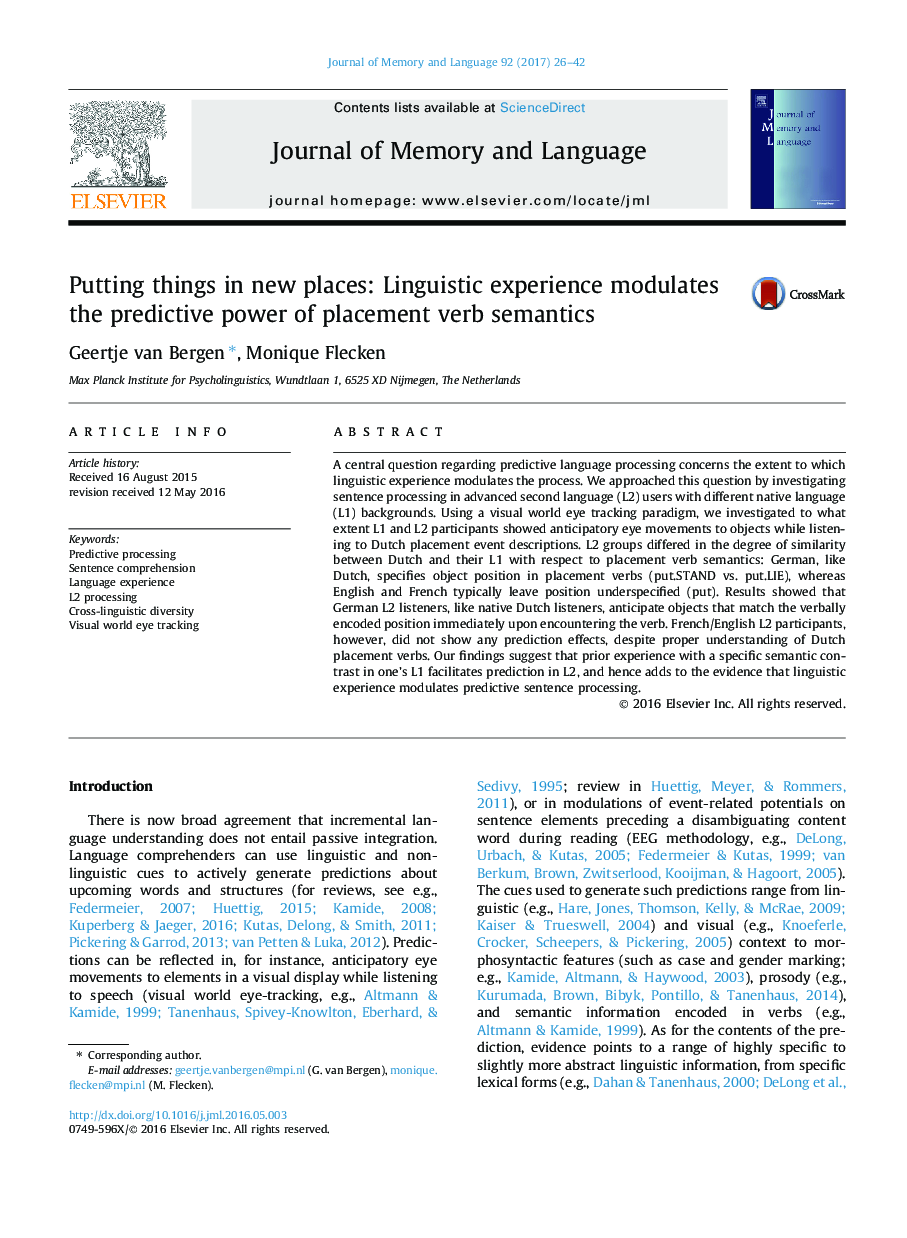| Article ID | Journal | Published Year | Pages | File Type |
|---|---|---|---|---|
| 931733 | Journal of Memory and Language | 2017 | 17 Pages |
•We examine use of language-specific verbal semantics for predictive processing.•Dutch L1 and German L2 users predict object position based on Dutch placement verbs.•French/English L2 users do not anticipate object position on the basis of these cues.•Results show effects of language experience on predictive sentence comprehension.•L2 research allows cross-linguistic comparisons using identical linguistic stimuli.
A central question regarding predictive language processing concerns the extent to which linguistic experience modulates the process. We approached this question by investigating sentence processing in advanced second language (L2) users with different native language (L1) backgrounds. Using a visual world eye tracking paradigm, we investigated to what extent L1 and L2 participants showed anticipatory eye movements to objects while listening to Dutch placement event descriptions. L2 groups differed in the degree of similarity between Dutch and their L1 with respect to placement verb semantics: German, like Dutch, specifies object position in placement verbs (put.STAND vs. put.LIE), whereas English and French typically leave position underspecified (put). Results showed that German L2 listeners, like native Dutch listeners, anticipate objects that match the verbally encoded position immediately upon encountering the verb. French/English L2 participants, however, did not show any prediction effects, despite proper understanding of Dutch placement verbs. Our findings suggest that prior experience with a specific semantic contrast in one’s L1 facilitates prediction in L2, and hence adds to the evidence that linguistic experience modulates predictive sentence processing.
